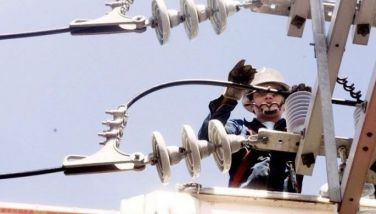Surviving desperate times

To describe the situation as tough for business is an understatement.
What makes it tougher is the fact that we do not know when this pandemic is going to end. The United States just recently reported a new daily record in terms of COVID-19 infections. Widespread spikes are also being recorded in Europe as it experiences what is described as a second wave of the pandemic. Researchers around the world are racing to develop a vaccine against the virus which has killed more than 1.1 million globally.
For many businesses, it is no longer about making a profit this year and the next. It is about how to survive this catastrophe and make ends meet. For big businesses, one or two years of losses may not mean so much, but for micro, small and medium enterprises or MSMEs, this means either laying off workers or closing shop altogether.
But even large businesses had to learn quickly how to adapt to the situation. Many restaurants, even huge fast food joints, which had to stop accepting dine-in customers temporarily, were forced to sell their uncooked food supplies either through online outlets or via physical stores like supermarkets and convenience stores. Even then, Jollibee had to close over 250 stores after incurring almost P12 billion in losses in the first half of the year alone, mostly from the second quarter, when the lockdowns peaked.
Even the pre-need industry was not spared.
PhilPlans, the only pre-need company that sells education, pension and memorial plans all at the same time and a leading force in each of these categories, had everything for it. As of end-2018, it had a capitalization of P700 million, or more than five times than what the Insurance Commission required. It also had a trust fund amounting to P31.8 billion, even as it paid over P35 billion (P4.3 billion in 2018 alone) to over 500,000 plan holders since the company was established in 1989.
Then the pandemic came.
As described by PhilPlans executive vice president and chief operating officer Jaime Dizon, the pandemic is a once in a generation event that no one could have foreseen or expected. He said that its scale and magnitude is something that has not been seen in the past century, its effect was quick and devastating to the economy and the financial markets, both the equity and fixed income.
“The Philippine Stock Exchange (PSE) index was down 13.15 percent as of the end of February, 19.15 percent on March 10, and 31.91 percent YTD on March 31. Even the fixed income market was not spared. As of March 31, the fixed income market was down 0.5 percent. PhilPlans’ equity investments have lost value and so also have our investments in fixed instruments. Our real estate investments has also lost value and sales have slowed down. Our sales of products have also suffered,” he said.
Pre-need companies are required by law to set up a trust fund out of their premium collections or planholders’ payments and this fund is supposed to answer for future delivery of property, of performance of services as provided in the pre-need contracts, or the payment of benefits, services, termination values payable to planholders. The Pre-Need Code provides a choice of investments for the trust fund to ensure, among others, that the interest of the planholders are protected.
To cushion the blow on its business, PhilPlans had to quickly change its operational strategy, particularly by making more digital payment channels available. This way, planholders are still able to transact with less or no exposure to the virus.
However, this also meant the closure of all but one of its branches. In the end, saving the company’s trust fund was more important in order to continue servicing the planholders.
Company officials said they expect that the public would prefer to keep their cash and to prioritize basic needs of the family instead of purchasing plans for at least two years unless a vaccine is developed earlier than expected. Because of this, PhilPlans closed almost all its branches nationwide and retrenched a big portion of its manpower to save on operating expenses.
These moves, they said, would bring down costs and provide more financial resources to the planholders.
“It was not an easy decision for the company to make. Our employees are important to us and letting them go to ensure the continuity of the business was very painful. In the same light, we have to ensure that the employees receive a sufficient retrenchment package that will help tide them over this trying time,” they said.
Painful as it may be, the company’s approach was an attempt to reach a win-win solution, they added.
In addition, PhilPlans said that with everything happening at a fast pace and concerned about further depression of values, the company decided to take the extraordinary step of safeguarding the portfolio of the trust fund investments for the benefit of all planholders by temporarily deferring the payments of maturities for this year.
It explained that this deferment, as provided for in the fortuitous event provision of the plan, will enable the pre-need company to payout the maturities of all planholders in a more orderly manner, to which the Insurance Commission has agreed to.
Had this not been resorted to, PhilPlans said it would have had to sell down the assets of the trust fund at distressed/fire sale prices to the detriment of the other planholders. This would have resulted in a depletion of the portfolio of assets and in compromising its ability to service future maturities.
Moving forward, PhilPlans has started the digitization of its premium payments to also help stop the spread of COVID-19. It said that it also intends to push forward with its disrupted plans for 2020, as well as expand its mortuaries nationwide to help increase the sales of its memorial plans.
Given the expected huge drop in sales for the entire pre-need industry, providing payment moratoriums to planholders may not be enough to provide the industry a badly needed relief. While the Insurance Commission has issued a number of circulars providing for measures to cushion the economic and financial impact of the pandemic on the industry, these might not be enough, given the drop in sales and in the value of its trust fund investments.
For comments, e-mail at [email protected]
- Latest
- Trending






























